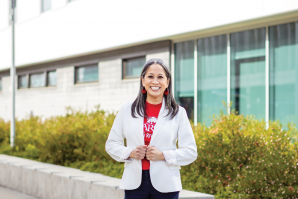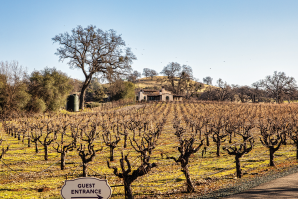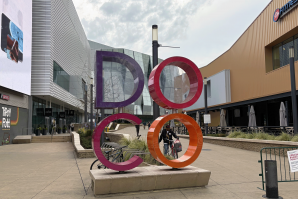
Diversity Still Matters
West Sacramento mayor shares how leaders can advance equity at the local level
Diversity, equity and inclusion are buzzwords that swim all around us. But how we define and put these principles into action comes from somewhere deep inside. For me, it’s my parents’ legacy that inspires me to enact policies that empower constituents, like scheduling town halls in every district in West Sacramento.

The Way We Work: Lisa Cardoza
A glimpse into the daily life of the president of American River College
Helping students is in Cardoza’s bones. She calls her philosophy “Students first,” and this informs everything she does at ARC, which serves over 30,000 students, making it the sixth largest public two-year college in the nation.

Dilemma of the Month: Does the Pregnant Workers Fairness Act Cover Cramps?
I work for a small company, and I’ve been here for three months.
I get horrid PMS symptoms and would like to take PTO one day a
month so as not to have to go into the office when I’m at my
worst. If you were a manager, how would you feel about a new
employee requesting this kind of PTO request? Should I have asked
before I started? Should I wait till I have more tenure?

Doris Matsui Just Won Her 10th Full Term in Congress. What’s Her Secret? (Hint: It’s Not Just Having a ‘Safe Seat’)
A district office chat with a political marathoner
“When I’m in Sacramento,” she says, “people stop me on the street wondering about the impact something will have on their lives. I respond to every inquiry, but that doesn’t mean I’m able to go down every rabbit hole.” She smiles. “I always stand firm on what my constituents want. They first put me here and have put me back here every two years.”

Experts Share How to Transcend Trends and Spend Wisely on Your Home’s Interior
Considering the financial investment and the impact of our home environment on our personal well-being, it’s important to get it right. Comstock’s consulted several prominent interior designers in the Capital Region to get their take on current trends, as well as how they create a home that feels both timeless and fresh.

A (Feminine) Touch of Tuscany in Amador County
Founder of Teneral Cellars aims to empower women with every bottle
Teneral Cellars winery in Plymouth is an award-winning, women-owned and self-proclaimed disrupter in the industry. It’s also an oasis in the Shenandoah Valley that’s less than an hour’s drive from Sacramento, though reminiscent of a picturesque wine region in Italy.

Hydrologic Engineering Center in Davis to Keep Federal Government Lease
Longtime center had been sent a lease termination notice
Behind a nondescript door in downtown Davis exists a little-known but vitally important piece of infrastructure, the Hydrologic Engineering Center. A recent threat to this center’s existence appears to have passed.

Five Years After the Shelter-in-Place Order, How Is Downtown Sacramento Doing?
Sacramento businesses face mixed results since first shutdowns associated with COVID-19 pandemic in March 2020
In the first year of the COVID-19 pandemic, Comstock’s followed four downtown Sacramento businesses and their broader sectors for a six-part series. On the fifth anniversary of the shutdowns, we checked in to see how they are faring.

The Capital Region’s Charcuterie Entrepreneurs Are Turning Grazing into a Gourmet Experience
Charcuterie boards gained national attention from the business crowd in 2022, when Aaron Menitoff and Rachel Solomon Fascitelli, co-founders and co-CEOs of the online cheese and charcuterie gifting business Boarderie, appeared on “Shark Tank,” eventually walking away with a deal from Lori Greiner and generating $70 million in revenue.

These Female Financial Advisors Help Women Rethink Their Relationship With Money to Build Wealth
The faces of entrepreneurship and wealth holding are changing as women make gains in both facets of economic life. These shifts are affecting how they’re managing money — and who they turn to for help.







